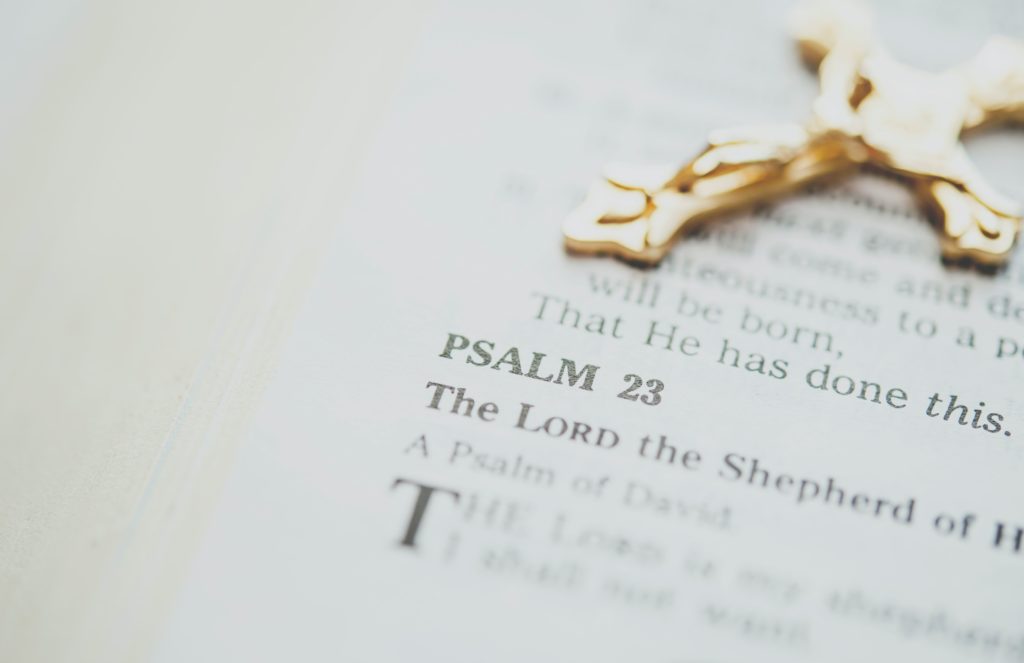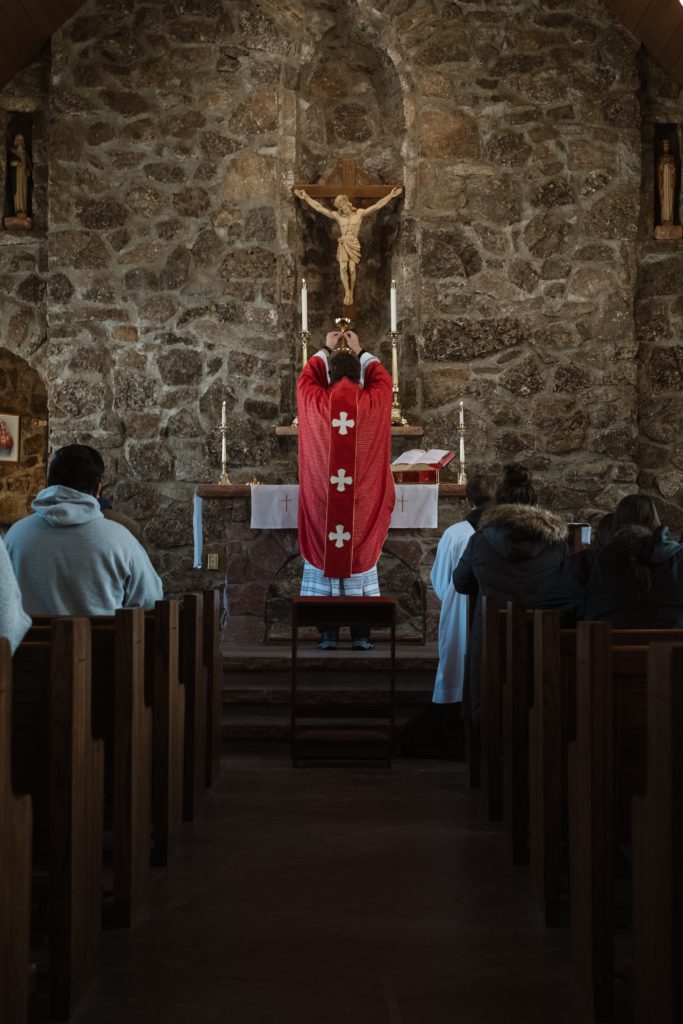Father Chet, March 31, 1973
History seems to run in cycles. There are more or less static periods, or long plateaus, where events succeed one another rather placidly without too much variance and with only small crises in the normal decisions of life to face. These uneventful periods are then succeeded by a time of upheaval, a lack of unity, where everything permanent seems to fall apart. A new age of history is in the making and the world finds itself at a crossroads. The decisions that people make at such critical times usually determine the future course of events for centuries to come.
Crossroads of History
I am convinced that the human race and Christianity are at one of the more important crossroads of history. Things are in a very fluid state. Rather than being solidly moored to a permanent shore, we are like a large ship adrift. It is, therefore, our responsibility to take hold of the wheel of destiny, and guide the church and humankind toward the goals for which God has destined us.
In this issue of the Open Door, I will confine my remarks to our responsibility toward the preservation and strengthening of unity among Christians, and particularly, but not limited to, Catholics. When we study the tragic results of disunity among Christians over the past 1,800 years, it would seem that there is hardly ever sufficient reason to justify a split in the church. Yet indications are that we are sitting on a powder keg somewhat similar to the situation which existed in 16th century Germany.
Dangerous Polarity
There is a lack of unity and dangerous polarity in almost every community in the Catholic Church. Most parishes are split between conservatives and liberals, with another large segment in the middle who are thoroughly confused and who do not know what to make of recent changes. Many religious communities and many groups of priests are divided with similar polarities.
There is a dangerous polarity in almost every community in the Catholic Church.
There is evidence that in the 16th century, Martin Luther did not want to break with Rome. If the right approach had been used, the division probably could have been prevented and the needed reforms accomplished. It was only after Luther experienced repeated frustrations that he took the ultimate step of the total severance from the papacy.
Likewise, today, there is no good reason why Christianity and the Church should become fragmented. If all of us take the time and effort to practice the needed restraint, and discover the proper approach to our problem of disharmony, we should, with God’s help, find a way out of our present dilemma and preserve unity and truth in the Church.
Lack of Understanding
If we are to make a positive contribution to the task of maintaining unity, we must study the causes which impel people to withdraw from the Church. In our search for such causes, we must work on the presumption that, when people break away from the unity of the Church, they are following their conscience and doing the thing which they are sincerely convinced is necessary. When there are evil causes for this, it usually does not help the situation to point out such causes.
However, in situations where there is sincerity, and where either ignorance or some other human frailty is the cause of the break, it helps if we can isolate the cause and attempt to discover how to solve the problem without an open schism. So my thoughts are directed to those who are tempted to do something drastic which would cause disunity in the parish, religious community, diocese, etc., but still feel compelled with the utmost sincerity of conscience to do this for the sake of truth.
Being in Community

There are also others who do not formally withdraw from the Church but simply cease going to Mass or stop participating in church activities. There are others who may be observers or participants in the struggle. We ourselves may not dissociate from the Church, yet we do little or nothing to prevent others from leaving. Like Cain, we fail to appreciate sufficiently that we are a community, a family, and should do all in our power to foster unity in the Church and among Christians.
Perhaps the most common reason why sincere Christians sometimes feel impelled to break away from the Church is that they find themselves being pulled in two directions, a situation which poses a real threat to their integrity as persons.
Tug-of-war of Conscience
On one hand, one is obliged to follow their conscience in the pursuit of what they sincerely believe to be the truth. On the other hand, one feels obliged in conscience to be faithful to the Church even when it teaches something apparently contradictory to what they believe to be true. This splitting of loyalties between two apparently irreconcilable obligations endangers one’s health and sanity.
It is impossible to continue to live at peace until resolution is made of the tug-of-war going on within one’s conscience. As much as one might appreciate the necessity of unity, a separation often seems to be the only way to survive. And, since self-preservation is the first law of life, finally in desperation, such persons commit themselves to the act which removes them from the Church.
Resolving a Split in Our Loyalties
Is there anything we can do for those who find themselves caught in such a bind?
Yes, as long as the conflict is faced before it progresses to the point of total desperation. A conflict of loyalties usually means that somewhere along the line confusion has arisen as to one’s ultimate responsibilities.
If we start with the proposition that God never asks the impossible nor asks something contradictory to another responsibility already imposed, then we know that somewhere we have become confused regarding our goals in life. Somewhere we have lost sight of the proper order and priorities of our responsibilities, and, without realizing it, we are making something primary which should be secondary.
Putting it another way, we are taking some area of life too seriously. Therefore, it becomes a matter of seeking to re-inform ourselves of the most basic and essential duties of life. We need to develop a more mature and sophisticated attitude toward the Church, and a less simplistic and unquestioning attitude of blind obedience.
Our Understanding of God
Many of us make the mistake of imagining that God requires much more of us than is really the case. Our image of God is too much that of a stern judge who demands a strict accounting of every moment: every thought, word, action, and desire.

It is true that in the New Testament there are certain assertions which portray such a picture of God. These images contradict the gentle, merciful, loving heavenly Father who is so clearly depicted by Jesus in the Gospels. All too frequently we make a choice between what kind of God we will accept and what we believe the real God to be.
Keeping Balance
The Gospels are addressed to the needs of all humankind. Because of our tendency toward laziness and selfishness, we need to be reminded at times of the seriousness of life. However, it is a mistake for scrupulous and serious-minded people to exaggerate these solemn reminders of the accounting which justice will require of us.
We need, rather, to be re-assured of the goodness, gentleness, mercy, and love of our heavenly father, of Jesus, our divine Brother who gave his life for us, of the Holy Spirit who has willed to remain with us as our counselor and strengthener. If we allow ourselves to over-emphasize either aspect of God, we get a distorted and unbalanced picture of reality and of our responsibilities.
Essential Duties of Life
Many Catholics have assumed so many religious duties that they find it impossible to determine the proper order and priority of these obligations. We must take the situation of the moment and try to simplify our relationship with God.
Actually, Jesus did this in his response to the question of the Pharisee, “What is the greatest commandment?” Quite simply it is to love God and to love our neighbors as we love ourselves. This is really the “golden rule”— to do unto others as you would have others do unto you. Everything else in religion is secondary to these two basic tasks of life.
Responsibilities of Love
Admittedly, it is difficult at times for us to understand clearly what the responsibilities of love are. Love cannot be understood through words alone, but only through the experience of having someone love us. Perhaps the most positive contribution to unity that many of us can make is to give others a first-hand experience of someone really caring for them and loving them in a truly unselfish way.
Basically, this love will place service in consideration of others above competition with them. Having received such kindness and thoughtfulness from us, they may be able to gain some perspective on their confused thinking and determine where their priorities should be.
Love cannot be understood through words alone
Regardless of how someone arrives at the conviction of the relative clearness of God’s demands of love, once it is realized, they feel relieved of a great deal of the tension that is otherwise felt in their relationship with God and other human beings. Instead of feeling anxious about a multiplicity of demands which seem nearly impossible to carry out, they may experience a beautiful expansiveness and freedom of real love.
Prayer, liturgy, and all the other duties to God become a source of refreshment rather than of exhaustion and futility. Hope for the church and hope for the future replace hopelessness and despair.
Embracing Tolerance
One of the signs of maturity in the Catholic Church is tolerance for those who have different religious beliefs. Formerly, we were convinced that we Catholics alone possessed the full truth and that those who disagree with us were heretics.

Today, largely in part to Vatican II, we realize that the human condition is such that all of us have only a partial comprehension of the truth. We are grateful for the particular grasp of truth we have as Catholics, but we can safely presume that those who disagree with us also have valid insights into the truth which will be of profit to us if we only listen to them.
The idea of a plurality of beliefs, even in regard to the most basic doctrines of Christianity, is still not generally accepted by some Catholics. Having only recently come out of a tradition of triumphalism regarding our exclusive possession of the truth, it will, no doubt, take a generation or more for Catholics to become adjusted to this new attitude toward truth which received official recognition at Vatican II.
Recognizing Limitations
We need to remind ourselves every day of the limitations of the present state of human knowledge. In reality we understand so little, and we are especially limited in our knowledge of God. While on earth, no one is capable of ever having a complete grasp of the truth. There is always so much more to learn than we now grasp.
So, when our understanding of the truth seems to be contradictory to that of someone else, a possible, and often overlooked conclusion is that the two of us are looking at the same truth from two different points of view. It may well be that the other person is wrong and that we are right. It is more probable that each of us has a partial hold on the truth, and neither of us understands the whole truth.
Tolerance and Patience
If we are in basic agreement concerning the love of God and love of neighbor, and if we have a proper humility regarding our present limed grasp of the truth, we will be tolerant of those who disagree with us. We will also begin to appreciate the richness and contribution such diversity can add to our understanding.
If we could grasp sufficiently the fullness of God’s tolerance and patience with us, and especially toward our sinfulness, we would avoid becoming so over-wrought when we fail in the pursuit of truth and love, and especially when we see others fail.

There are many instances of God’s forbearance in both the old and new Testaments. The case of David is one example. Despite his many sins, David remained God’s favorite, and the Lord promised him extraordinary blessings. The story of the Prodigal Son is another instance of the tolerance and patience of God toward wayward humankind. The very fact that God allows the human race to continue making so many mistakes and committing so many sins is in itself an indication of God’s forbearance and mercy.
Consider God’s examples. Consider that we should be patient with our own limitations, faults, and failures, as well as with the shortcomings of others. We must no more demand perfection of others than we expect instant perfection in ourselves. And, we should be willing to live with differences of opinion, a plurality of ideas and approaches, a wide divergence in the choices and the goals and priorities of everyone. Such variety is the spice of life and should make living with others both challenging and interesting.
Editor’s Note: This is the first half of Father’s message on this topic; the continuation is here.
